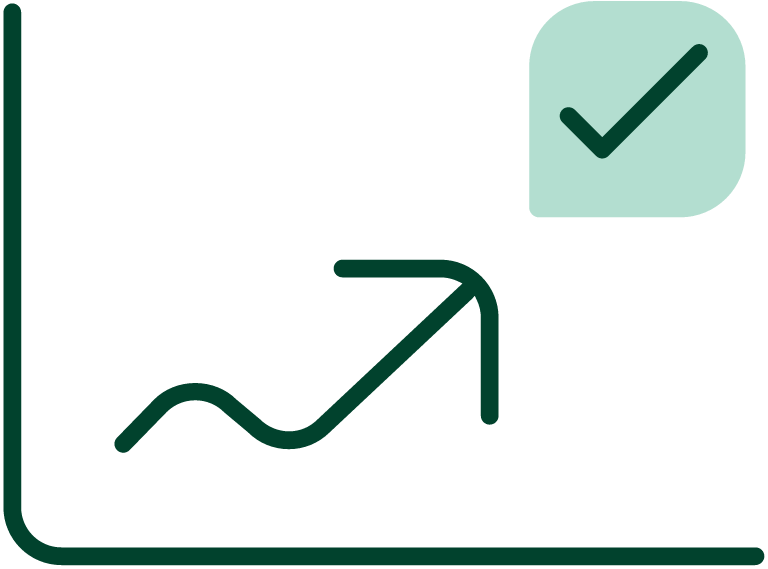Average collection period refers to the amount of time it takes your business to receive payments from clients. It’s a metric commonly used to get a snapshot of cash flow on hand and how effective the company’s collection process is overall.
Let’s review why this metric is important, how to calculate average collection period, and how modern tools like automation can take the hard parts off your shoulders.
How To Calculate Average Collection Period
The average collection period offers a snapshot of accounts receivable (A/R) collection efficiency. Therefore, it indicates how much capital your company has available to fulfill its financial obligations. This applies to ongoing expenses like salaries, but it also applies to a longer-term financial strategy and positioning that sets your company up for success.
Naturally, it’s a crucial metric to track for growing businesses that need stable, predictable income to fund service expansions and other growth opportunities.
Calculate your average collection period with this easy formula:
(days in the period) x (average accounts receivable) ÷ net credit sales = average collection period
The collection period formula itself is simple to calculate, but note that the figure, on its own, won’t do your company much good. The average collection period is a comparative metric holding more value when you get a sense of where you stand relative to others.
These types of metrics vary greatly across industries. You can get more specific insights by tracking your average collection period over time and using it as a benchmark for industry trends.
In most cases, companies with a similar size or scope as yours will produce similar metrics. So, start getting data now and build a history for further assessments down the line.
The Role of Automated Accounts Receivable Solutions
With the right tools, you can use A/R collections automation to optimize your average collection period. It comes down to leveraging tools that streamline collections from planning to execution. Doing so improves liquid cash flow, improves days sales outstanding (DSO) rates, and can even reduce payment delinquency.
For example, online customer portals give clients an easy way to make payments and review their account details on their own. A real-time dashboard enables the collections team to stay on-top of all their clients. The idea is to make things easy for both you and your clients. If you give them the tools to automate payments, you’ll likely find fewer clients will struggle with the process.
Research into A/R efficiency shows by leveraging automation, companies experience a 23% improvement in prioritizing collections compared with those that still rely on manual methods.
Automated accounts receivable collections solutions also make it easier to get a handle on key A/R metrics with user-friendly dashboards and custom reporting tools. Rather than running reports by hand, companies can enable flexible tools to generate these reports on nearly any schedule that makes sense for the business:
- A/R aging reports
- Cash forecasting
- Collection effectiveness indexes
- DSO trends
- Payment histories
…and more
Transform Your A/R Processes with Gaviti
💸 Reduce DSO and Accelerate Cash Flow – Gaviti’s intelligent automation tools help you decrease Days Sales Outstanding (DSO), ensuring faster invoice payments and improved cash flow.
📈 Enhance Collections Efficiency – Automate your collections workflows with Gaviti’s platform, which offers real-time performance metrics and analytics to optimize your A/R operations.
🔗 Seamless ERP Integration – Gaviti integrates smoothly with your existing ERP systems, eliminating manual data entry and reducing errors in the invoicing process.
Take a quick tour of Gaviti’s automated A/R platform and see how it can revolutionize your collections process:
Experience Gaviti in ActionHow to Lower Average Collection Periods with Gaviti
Gaviti’s automated accounts receivable (A/R) platform offers a comprehensive solution to streamline your collections process for the purses of lowing a company’s collection period
Key benefits of implementing Gaviti include:
- Accelerated Cash Flow: Automated reminders and personalized outreach encourage timely payments, leading to a significant decrease in late receivables.
- Enhanced Efficiency: By automating manual time consuming processes, your team can focus on strategic activities rather than manual follow-ups.
- Improved Visibility: Real-time dashboards provide insights into key A/R metrics, allowing for proactive decision-making and better forecasting.
- Customized Workflows: Tailor your collections strategies with dynamic segmentation and personalized escalation paths to suit different customer profiles.
By leveraging Gaviti’s automation capabilities, businesses have reported up to a 30% or more reduction in Days Sales Outstanding (DSO) within six months. This not only improves liquidity but also strengthens customer relationships through consistent and professional communication.
Want to learn more? Schedule a demo with Gaviti
Q&A: Frequently Asked Questions About Average Collection Periods
1) Why is optimizing the average collection period important?
Optimizing the average collection period is crucial for maintaining healthy cash flow and ensuring timely access to working capital. By applying the average collection period formula—(Average Accounts Receivable / Net Credit Sales) × 365—you can assess the efficiency of your collections process. A shorter average collection period ratio indicates faster receivables turnover, enhancing liquidity and reducing financial risk.
2) What industries benefit most from reducing their average collection period?
Industries with substantial credit sales, such as manufacturing, wholesale, construction, and professional services, benefit significantly from reducing their average collection period. A shorter average collection period ratio in these sectors improves cash flow stability, enabling better management of operational expenses and investment in growth opportunities.
3) How does automating accounts receivable optimize the average collection period?
Automating accounts receivable streamlines invoicing, payment reminders, and collections tracking, leading to a reduced average collection period. By leveraging automation, businesses can apply the average collection period formula more effectively, monitor the average collection period ratio in real-time, and implement strategies to accelerate cash inflows.
4) Which accounts receivable metrics can automation tools track?
Automation tools can monitor most key accounts receivable metrics, including:
- Average Collection Period: Measures the average number of days to collect receivables.
- Days Sales Outstanding (DSO): Indicates the average time to collect payment after a sale.
- Accounts Receivable Turnover Ratio: Assesses how often receivables are collected during a period.
- Aging Reports: Categorize receivables based on the length of time an invoice has been outstanding.





















